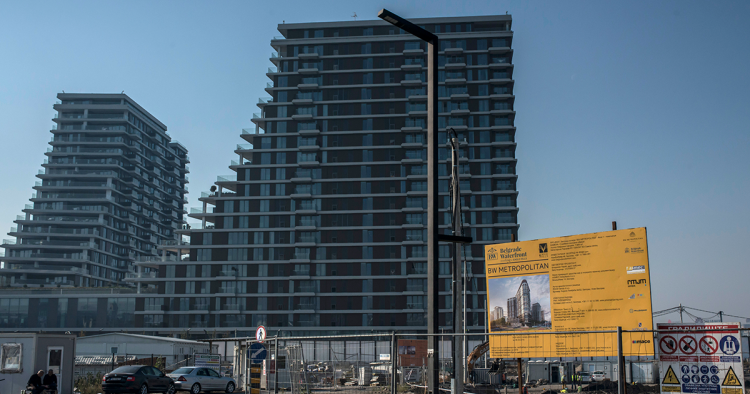On July
The UAE has become one of six countries with which Serbia has a strategic partnership agreement,
Growing economic ties
The UAE also had its reasons for pursuing closer ties with Serbia. As a group of U.K. researchers explained in 2017, the partnership has focused on four main areas: aviation, urban construction, agriculture, and defense. Investments in aviation and urban construction are supposed to help the UAE diversify its economy by moving capital abroad and preparing for the day when the Arab Gulf countries will no longer be able to rely on oil exports. Investments in agriculture and defense are a way for Abu Dhabi to invest in its food and military security. In doing so, the UAE gains a foothold in a region at the crossroads between the EU and the Middle East and has an opportunity to keep an eye on its rival Turkey, which is also active in the Balkans.
In 2013, the Emirati airline Etihad bought a 49% share in Serbia’s struggling JAT Airways, leading to the company’s restructuring under the name Air Serbia. In late 2020, as a result of the pandemic, Etihad reduced its share in Air Serbia from 49% to 18%. Although it has been downgraded, the aviation partnership remains in place. Air Serbia is contemplating restarting a flight between Belgrade and the UAE four years after it discontinued scheduled services to the country, as part of its search for new opportunities in the wake of the COVID-19 pandemic.
In the construction sector, the aforementioned Belgrade Waterfront project is at the center. The project was inked in 2015, and it entails a $3 billion investment to transform a wasteland into a luxurious urban complex. It allows Abu Dhabi to concentrate its capital in a country close enough to the EU
In the defense industry, the central figure has been Mohammed Dahlan, the exiled Palestinian former Gaza spy chief who is now working for the Emirati government as a fixer. Dahlan has been the facilitator of the UAE-Serbia partnership and Emirati investments in the Serbian defense industry. In 2013, Yugoimport SDPR, Serbia’s largest defense company
As the UAE imports 90% of its food needs, food security is the driving force behind Emirati investments in the agricultural sector. In 2013, the UAE Development Fund provided a $400 million loan for Serbian agriculture, followed by a $400 million deal in which Abu Dhabi-based Al Dahra Agriculture Company bought eight Serbian farming enterprises. In 2018 Al Dahra signed a $172 million agreement to take over the agricultural assets of local agribusiness firm PKB Korporacija.
The political angle
Domestic politics, boosted by the COVID-19 pandemic, have also played a central role in the burgeoning Serbian-UAE relationship. Serbia will hold presidential and
In December 2020, Vučić received several million euros worth of medical aid from the UAE arranged by Crown Prince Sheikh Mohammed bin Zayed al-Nahyan. Belgrade also received medical aid from Abu Dhabi in March of that year. After Vučić visited the UAE in March 2021,
During the tower ceremony at Waterfront Belgrade, President Vučić spoke of plans to increase salaries and pensions: “That would not be possible without growth, growth in construction, big jobs, dreams that we had. We have never achieved such a good performance [...] We are slowly reaching European standards in terms of salaries and pensions.” The statement is bold, but there is no doubt that Vučić is increasingly using the UAE and its projects in Serbia for domestic political marketing. President Vučić invokes cooperation with Abu Dhabi to promote himself as a leader who keeps the country and the economy afloat despite the hardships of the COVID-19 world. Earlier, in January 2021 as health authorities struggled with the pandemic, Vučić attended a ceremony full of historical choreography, unveiling a monument to medieval Serbian ruler Stefan Nemanja in the Waterfront complex.
However, the Emirati factor also brings risks. The Waterfront project remains controversial for many Belgradians due to the project’s lack of transparency. There is much debate about whether the luxurious urban complex fits with the low purchasing power of the average citizen and the city’s geographical and urban landscape. In 2016, a group of unidentified mask
Vuk Vuksanovic is a PhD researcher in international relations at the London School of Economics and Political Science (LSE), an associate of LSE IDEAS, LSE’s foreign policy think tank, and a researcher at the Belgrade Centre for Security Policy (BCSP). The opinions expressed in this piece are his own.
Photo by Martyn Aim/Getty Images
The Middle East Institute (MEI) is an independent, non-partisan, non-for-profit, educational organization. It does not engage in advocacy and its scholars’ opinions are their own. MEI welcomes financial donations, but retains sole editorial control over its work and its publications reflect only the authors’ views. For a listing of MEI donors, please click here.













